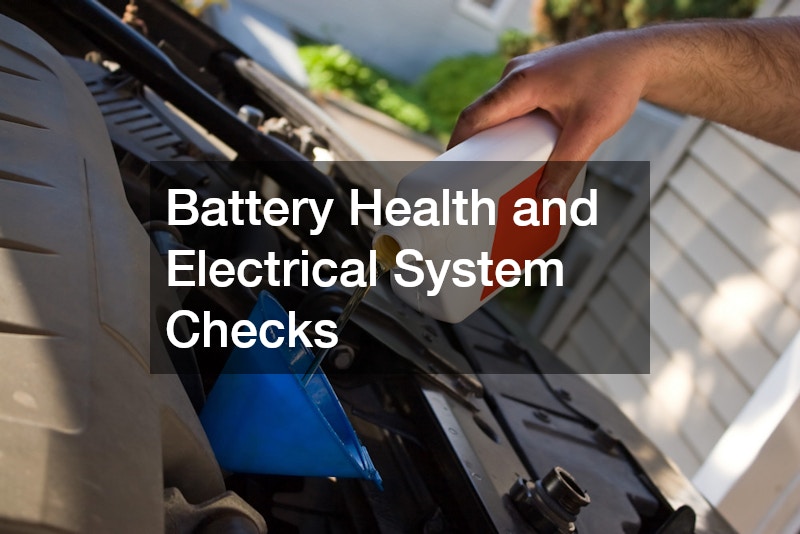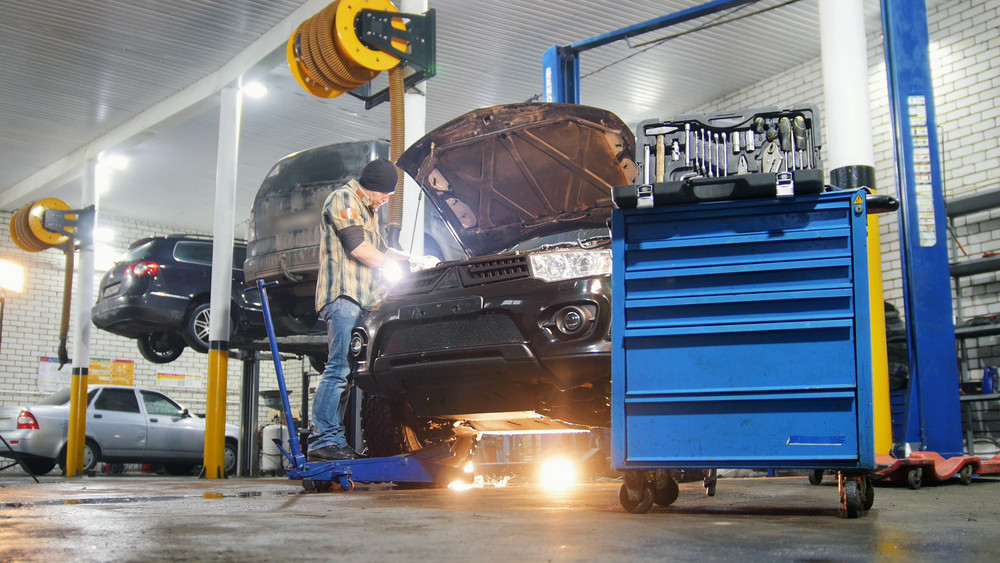
Minor Car Service What Every Driver Should Know

The Role of Minor Car Service in Vehicle Longevity
Routine vehicle maintenance is essential for ensuring both safety and longevity on the road. Many drivers focus on major repairs and neglect the importance of minor car service, which plays a crucial role in preventing costly breakdowns and keeping a vehicle running efficiently. A minor service typically involves inspecting and maintaining key components such as engine oil, filters, tire pressure, and brake pads. These checks, while seemingly small, contribute significantly to the overall health of a car and can extend its lifespan. Staying proactive with regular maintenance helps drivers avoid unexpected issues that could lead to inconvenient and expensive repairs.
A well-maintained vehicle not only performs better but also retains its value over time. Whether a car is used for daily commuting, long road trips, or occasional errands, minor servicing ensures it remains reliable and fuel-efficient. Ignoring basic maintenance can lead to bigger problems, such as engine wear, reduced fuel economy, and compromised safety. By understanding the fundamentals of minor car service, drivers can make informed decisions about their vehicle’s care and reduce the likelihood of emergency breakdowns. Establishing a regular service schedule with a trusted professional ensures that small issues are addressed before they escalate into significant problems.

Understanding Minor Car Service and Its Importance
Minor car service is a crucial aspect of vehicle maintenance that involves routine inspections and small adjustments to keep a car running smoothly. While major repairs address significant mechanical failures, minor servicing focuses on preventative care, such as changing the oil, inspecting the brakes, and checking fluid levels. These seemingly small tasks have a substantial impact on a vehicle’s performance, preventing wear and tear that could lead to more extensive damage. A proactive approach to servicing enhances fuel efficiency, reduces emissions, and ensures that all components function optimally.
When a vehicle is taken to an auto repair shop for minor service, professionals conduct a thorough checkup to identify potential issues early on. Mechanics inspect components such as the battery, belts, hoses, and air filters, ensuring that all parts are in good working condition. Many drivers overlook these routine checks, assuming that as long as their car is running, everything must be fine. However, even a simple oil change or a brake pad replacement can make a significant difference in overall performance.
Key Components Checked During a Minor Service
A minor car service typically includes a comprehensive inspection of essential components that contribute to the vehicle’s overall performance. This service often involves changing the oil and oil filter, which helps maintain engine health by reducing friction and removing contaminants. Tire inspections, brake pad checks, and battery testing are also commonly performed to ensure safety on the road. Mechanics also assess fluid levels, including coolant, transmission fluid, and windshield washer fluid, to confirm they are at the proper levels for optimal function. By addressing these fundamental maintenance needs, minor servicing keeps vehicles in peak condition, reducing the risk of unexpected mechanical failures.
Another important but often overlooked aspect of minor car service is ensuring compliance with legal and registration requirements, such as car tag renewal. Many states require periodic inspections to verify that a vehicle meets emission and safety standards before renewal. During a service appointment, mechanics can check for any potential issues that could result in a failed inspection, such as faulty lights, worn-out tires, or excessive exhaust emissions.

When to Schedule a Minor Car Service
Knowing when to schedule a minor car service is key to maintaining a reliable and efficient vehicle. While the frequency of servicing depends on the make and model of the car, most manufacturers recommend minor maintenance every 5,000 to 7,500 miles. Regular servicing helps identify small issues before they become major problems, preventing costly repairs down the line. Many drivers wait until they notice a performance decline or warning lights before scheduling maintenance, but proactive servicing ensures that the vehicle remains in peak condition. Routine checkups can also help maintain fuel efficiency, extend engine life, and improve overall driving safety.
In addition to mileage recommendations, certain driving conditions may require more frequent minor servicing. Stop-and-go traffic, extreme weather, and frequent short trips can all contribute to faster wear and tear on a vehicle. In these cases, drivers should consider scheduling minor services more often to ensure their vehicle remains roadworthy. Auto sales professionals often emphasize the importance of regular maintenance when selling vehicles, as a well-documented service history enhances resale value.
Fluids and Filters: Essential Maintenance Aspects
Fluids and filters play a crucial role in maintaining the health of a vehicle’s engine and other mechanical components. Engine oil, coolant, brake fluid, transmission fluid, and power steering fluid all need to be checked and replaced at regular intervals to ensure optimal performance. Fluids help reduce friction, prevent overheating, and keep various parts of the vehicle operating smoothly. Similarly, filters—such as oil filters, air filters, and fuel filters—prevent contaminants from entering the engine and other systems. Neglecting to replace these fluids and filters can result in poor fuel economy, engine damage, and a decline in overall vehicle efficiency.
Auto body repair specialists often encounter vehicles with premature wear and tear due to neglected fluid and filter maintenance. For example, dirty engine oil can cause sludge buildup, leading to poor engine performance and even failure over time. Clogged air filters restrict airflow, reducing horsepower and fuel efficiency. Regularly changing fluids and replacing filters ensures that a vehicle continues running at its best, preventing costly repairs in the future.
Tire Inspection and Rotation for Optimal Performance
Tires are one of the most critical components of a vehicle, directly impacting safety, handling, and fuel efficiency. Regular tire inspections help identify issues such as uneven tread wear, low pressure, and damage that could lead to blowouts or poor road grip. A minor car service typically includes checking tire pressure, ensuring proper alignment, and rotating the tires to distribute wear evenly. Properly maintained tires not only enhance a car’s handling but also improve fuel economy by reducing rolling resistance. Drivers who neglect tire maintenance may experience reduced traction, longer braking distances, and an increased risk of accidents.
For those who frequently require tow truck service due to flat tires or breakdowns, tire maintenance is even more essential. Uneven tread wear often indicates misalignment, suspension issues, or improper inflation, all of which can lead to premature tire failure. Regular tire rotations help ensure even wear and extend the lifespan of all four tires, reducing the need for frequent replacements.

Battery Health and Electrical System Checks
A vehicle’s battery and electrical system are vital for its overall functionality, ensuring that everything from the ignition to the headlights operates smoothly. A weak or failing battery can lead to slow engine starts, dim lights, and unexpected breakdowns, making it crucial to include battery health checks in a minor car service. Technicians inspect the battery terminals for corrosion, test the voltage, and ensure the alternator is charging the battery correctly. Additionally, the electrical system—including fuses, wiring, and connections—is examined to prevent potential failures that could lead to costly repairs. Routine battery maintenance helps drivers avoid the inconvenience of being stranded due to a dead battery.
Regular servicing at an auto body shop often includes a detailed electrical system diagnostic to identify underlying issues before they become significant problems. If a battery shows signs of aging or struggles to hold a charge, replacement may be recommended to prevent unexpected failures. Mechanics also check for loose or damaged wiring, which can cause malfunctions in essential systems like power windows, headlights, and dashboard indicators.
Brake System Assessment and Safety Considerations
Brakes are one of the most critical safety components in any vehicle, requiring routine inspections to ensure they function effectively. A minor car service typically includes checking brake pads, rotors, and fluid levels to ensure optimal stopping power. Worn brake pads can significantly reduce a vehicle’s braking ability, increasing the risk of accidents. Additionally, low or contaminated brake fluid can cause spongy pedal response, leading to delayed braking times.
Auto collision repair specialists often encounter vehicles with damage caused by brake failures that could have been prevented with regular servicing. Squeaking or grinding noises, vibrations when braking, or an unresponsive pedal are all signs that the brake system requires immediate attention. Mechanics also inspect the brake lines and calipers for leaks or wear, ensuring the entire system is in good working condition. Addressing minor brake issues early on can prevent more expensive repairs and enhance overall road safety.
Signs Your Car Needs Immediate Minor Servicing
Recognizing the early warning signs that a vehicle requires servicing can prevent minor issues from turning into major, costly repairs. Common indicators include unusual engine noises, decreased fuel efficiency, sluggish acceleration, and warning lights on the dashboard. Drivers may also notice vibrations, difficulty starting the engine, or an overall decline in performance. Addressing these issues promptly through a minor car service helps maintain the vehicle’s efficiency and prevents further mechanical damage. Routine maintenance ensures that small concerns are resolved before they escalate into major breakdowns.
Car insurance agents often emphasize the importance of maintaining a service record, as regular maintenance can positively impact insurance rates and claims. Neglecting minor service needs can lead to mechanical failures that result in accidents, potentially affecting insurance premiums. For example, a worn-out timing belt or low transmission fluid can cause severe engine damage if left unchecked. Keeping up with minor servicing not only extends the vehicle’s lifespan but also contributes to safe driving conditions.

Cost Expectations for a Standard Minor Service
The cost of a minor car service can vary depending on factors such as the make and model of the vehicle, the specific services required, and the location of the service provider. On average, minor servicing includes essential maintenance tasks such as an oil change, fluid top-offs, tire rotations, and brake inspections. While the cost may seem like an added expense, regular servicing helps prevent major mechanical failures that could result in far more expensive repairs. Investing in routine maintenance ensures that a vehicle remains in peak condition and continues to operate efficiently.
Transmission repairs, for example, can be one of the most costly expenses a car owner might face if preventative maintenance is neglected. A minor service appointment often includes checking transmission fluid levels and ensuring that the system is functioning correctly. If issues such as slipping gears or delayed acceleration are detected early, minor adjustments can be made before extensive repairs are needed.
DIY Maintenance vs. Professional Car Servicing
Some vehicle maintenance tasks can be handled by car owners, while others require the expertise of a professional mechanic. DIY maintenance includes simple tasks such as checking tire pressure, topping off windshield washer fluid, and replacing wiper blades. These small actions help keep a vehicle in good condition between scheduled minor services. However, more complex tasks, such as brake inspections, fluid flushes, and electrical diagnostics, are best left to professionals with the necessary tools and expertise. Attempting advanced repairs without proper knowledge can lead to mistakes that may damage the vehicle further.
Automotive diagnostics performed by professionals can detect underlying issues that might go unnoticed by the average driver. Mechanics use specialized equipment to assess the engine, transmission, and other key components, ensuring that all systems are operating correctly. While DIY maintenance can help extend the time between professional services, it should not replace a routine minor service.
The Long-Term Benefits of Routine Minor Servicing
Regular minor servicing is one of the most effective ways to ensure that a vehicle remains reliable, safe, and efficient over time. Routine maintenance tasks such as oil changes, fluid checks, tire rotations, and brake inspections help prevent unexpected mechanical failures and costly repairs. These services also contribute to fuel efficiency, prolong engine life, and improve overall driving performance. A well-maintained vehicle is less likely to experience breakdowns, ensuring a smooth and stress-free driving experience.
Beyond performance benefits, routine minor servicing also enhances a vehicle’s resale value. A well-documented service history demonstrates responsible ownership and reassures potential buyers that the car has been properly maintained. Additionally, some insurance providers may offer lower premiums for vehicles that receive consistent maintenance. Whether a driver intends to keep their car for years or eventually sell it, regular servicing is a valuable investment.
